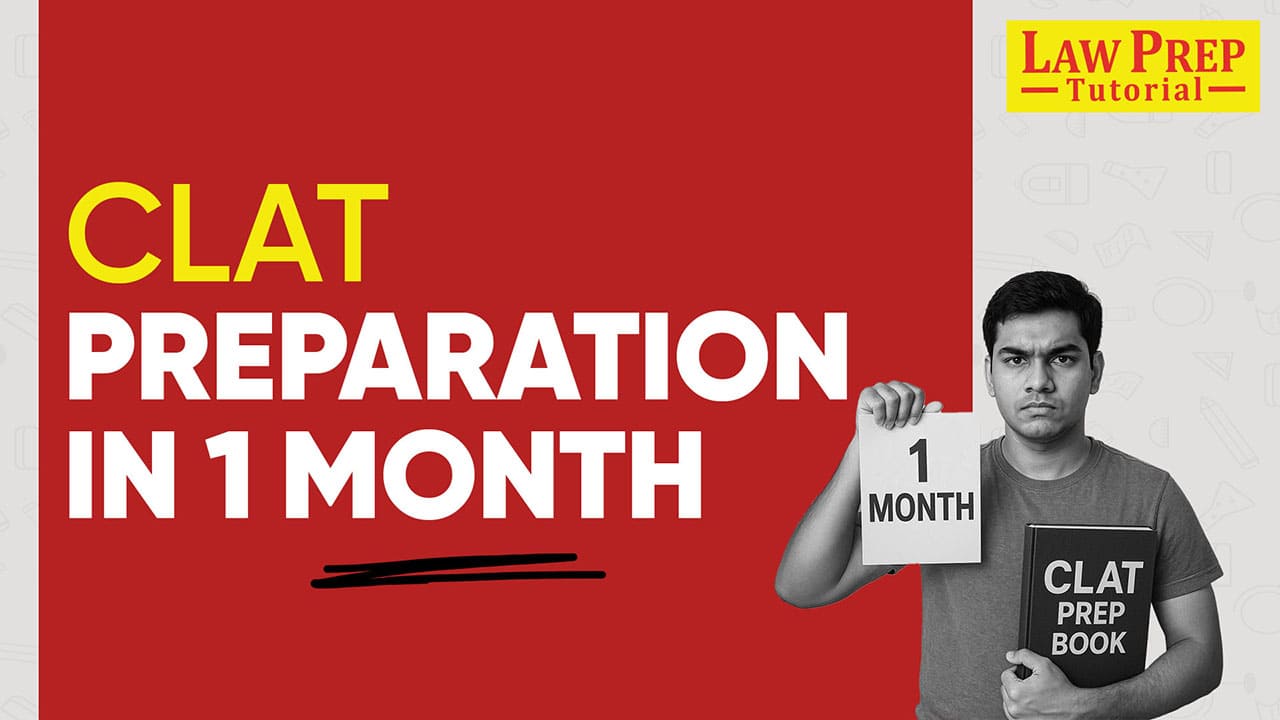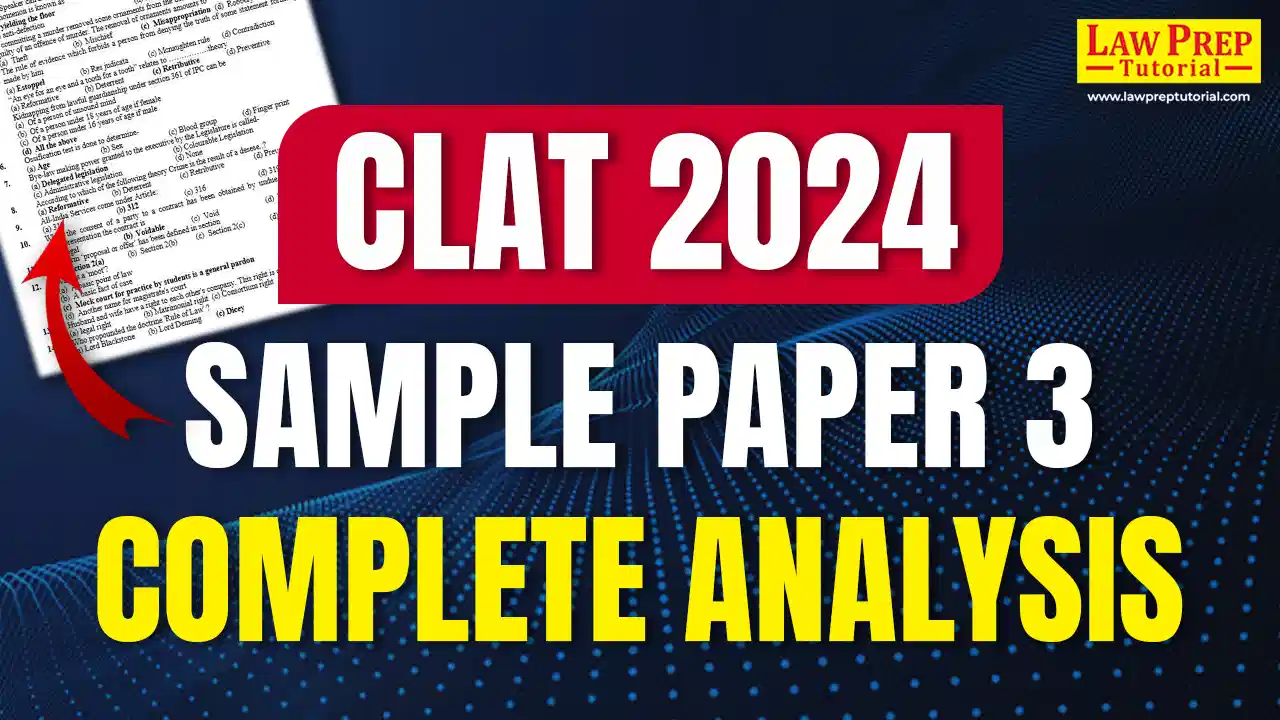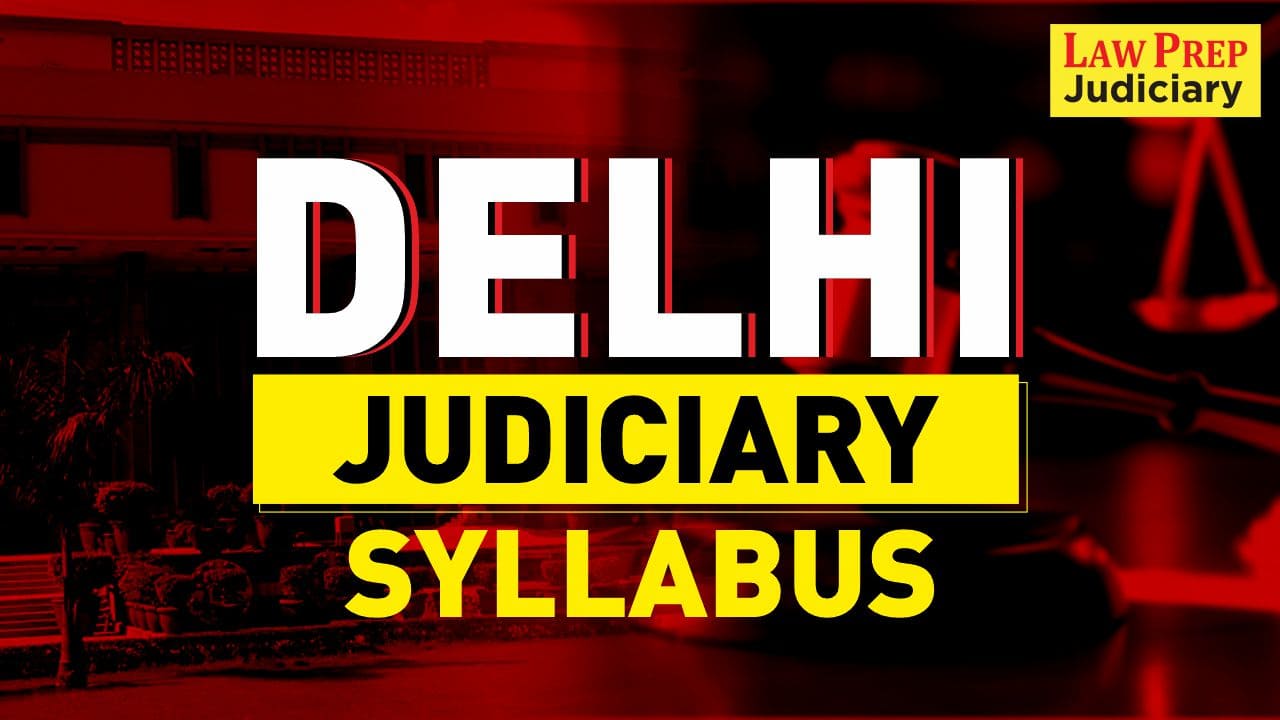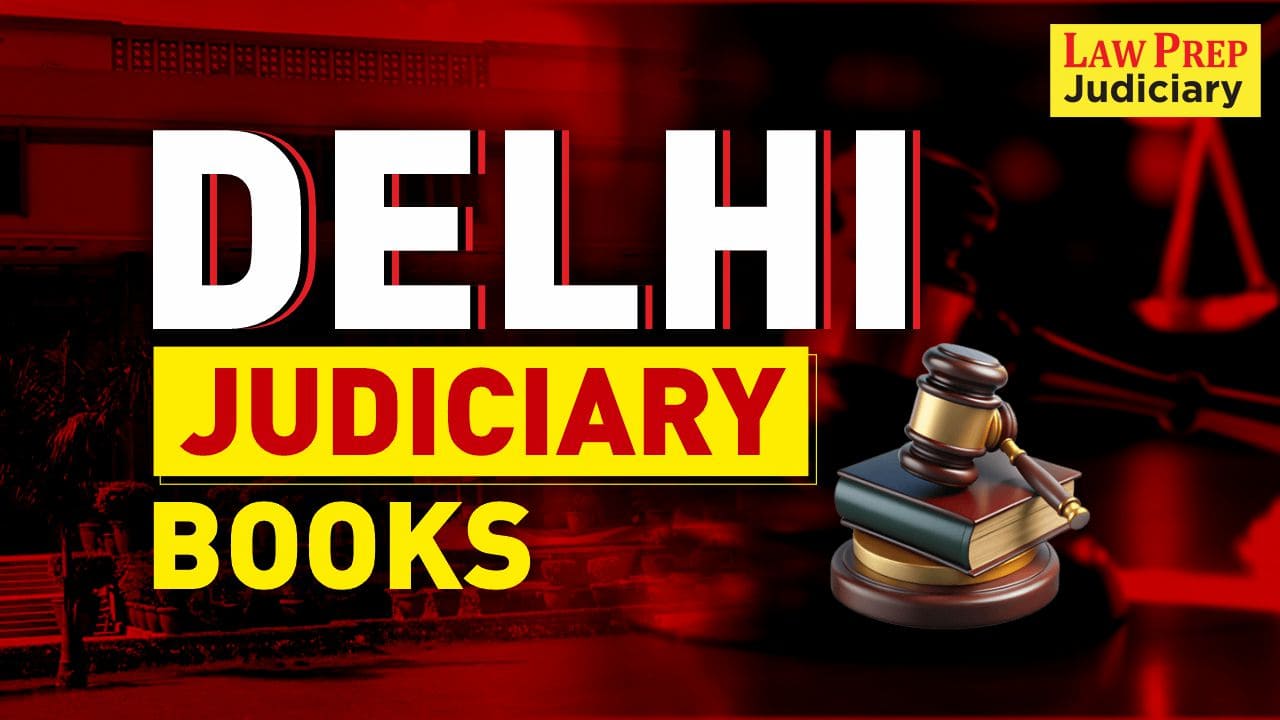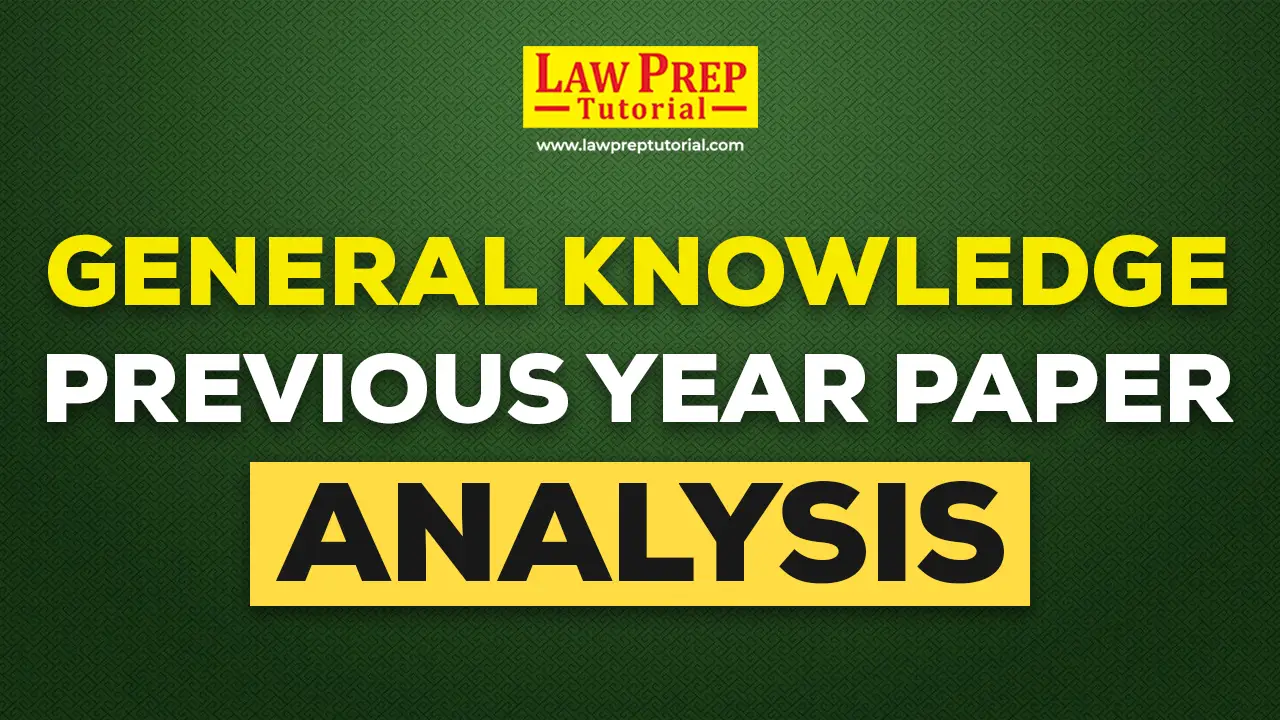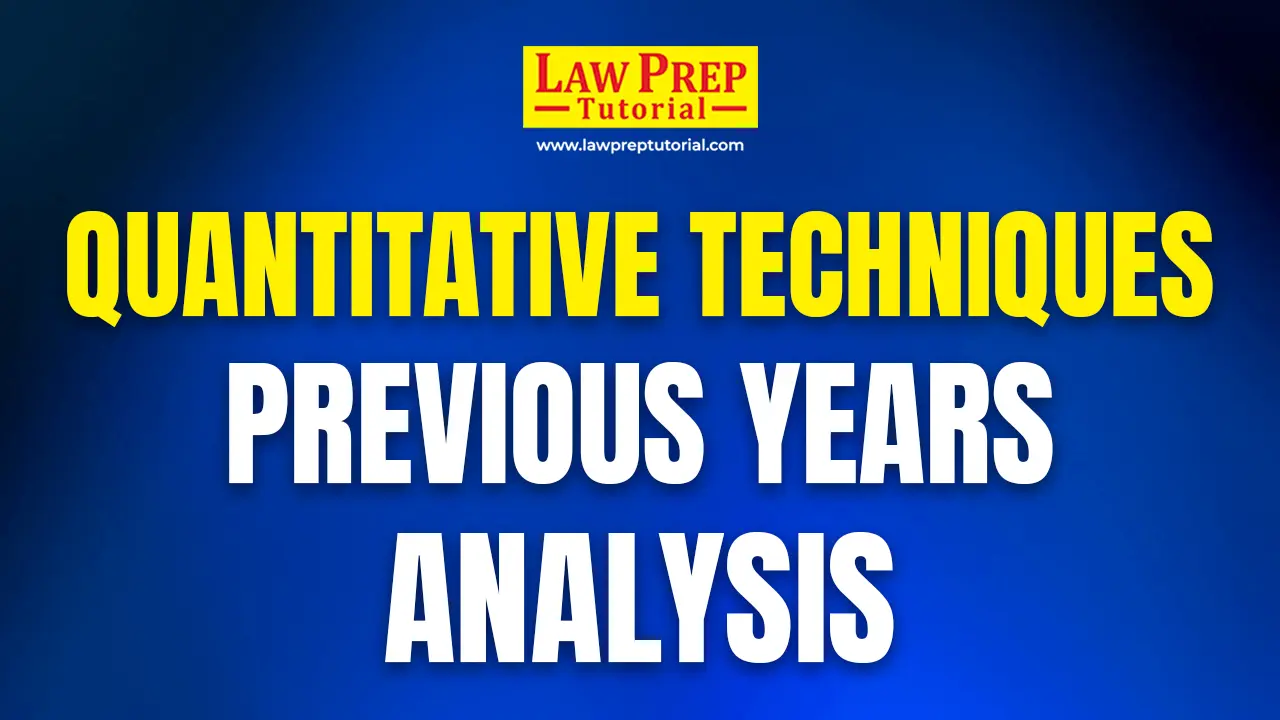Aspiring Civil Judges in Uttar Pradesh face a crucial step in their legal journey – the UP PCS J Exam, conducted by the Uttar Pradesh Public Service Commission (UPPSC). This competitive exam assesses candidates’ knowledge of the law, general knowledge, and aptitude for the judicial role. To navigate this challenging process effectively, a well-structured preparation strategy is essential. This comprehensive blog will equip you with the knowledge and strategies to ace the UP PCS J Exam and secure your place in the esteemed Uttar Pradesh Judicial Services.
The UP PCS J Exam is conducted in three stages: Prelims, Mains, and interview. The Prelims exam is a qualifying stage, while the Mains and interview stage is the deciding factor in selecting successful candidates.
The prelims exam is of objective pattern, and the mains is of subjective pattern. Prelims are qualifying and consist of two papers, i.e., of GK and Law section. The GK syllabus is vast, so you should start preparing for the exam early on to have ample time for revision. This blog post will provide a complete guide on how to prepare for the UP PCS J Exam, covering everything from the exam pattern and syllabus to the best study materials and preparation tips.
UP PCS J Exam Pattern And Syllabus
UP PCS J 2025 Prelims Exam Syllabus
The Prelims exam consists of two papers:
Paper-I – GENERAL KNOWLEDGE
This paper may include questions based on topics related to:
- Indian history and culture:
- Significant events, personalities, and movements that shaped India’s history
- Diversity of Indian culture, including art, literature, music, and traditions
- Indian geography and world geography:
- Physical features, climate, and resources of India
- Major geographical features, countries, and regions of the world
- Indian economy:
- Structure and growth of the Indian economy
- Key economic policies and institutions
- Current economic challenges and opportunities
- Indian polity and governance:
- Structure and functioning of the Indian government
- Constitutional principles and fundamental rights
- Contemporary political issues and debates
- Science and technology:
- Recent advancements in science and technology
- Impact of science and technology on society
- India’s contributions to the scientific and technological realm
- Environmental issues:
- Environmental challenges facing India and the world
- Sustainable development and environmental conservation efforts
- Role of individuals and communities in environmental protection
- Sports and awards:
- Achievements of Indian athletes in national and international competitions
- Prestigious awards and recognitions bestowed upon Indians
- Importance of sports in promoting physical fitness and national pride
- Books and authors:
- Literary works that have shaped Indian literature and thought
- Renowned Indian authors and their contributions
- Significance of literature in reflecting societal issues and cultural values
Paper-II – LAW
- Jurisprudence
- International Organizations
- Current International Affairs
- Indian Constitution
- Transfer of Property Act
- Indian Evidence Act
- Indian Penal Code
- Civil Procedure Code
- Criminal Procedure Code
- Law of Contract
UP PCS J 2025 Mains Exam Syllabus
The main exam consists of five papers:
Paper 1: General Knowledge:(200 marks)
This paper covers the same topics as the Prelims General Knowledge paper.
Paper 2: English Language: (200 marks)
- This paper tests the candidate’s English Essay writing skills, including precis writing.
- Hindi Language: This paper tests the candidate’s Hindi to English and English to Hindi Translation.
Paper 3: Law I (Substantive Law): (200 marks)
This paper will be of 200 marks. This paper covers the following Statutes.
- Law of contracts
- Law of Partnership
- Law concerning easements and torts
- Law connecting to the transfer of property, including the principles of equity, specifically applicable thereto.
- The principle of Equity with particular reference to the Law of trust ⎯ Specific relief
- Hindu Law
- Mohammedan Law
- Constitutional Law
Note- There shall be questions of 50 marks in relation to Constitutional Law alone.
Paper 4: Law II (Procedure and Evidence): 200 marks
- Criminal Procedure Code (Crpc)
- Code of Civil Procedure
- Law of Evidence
- Principles of Pleading
The exam will focus on practical aspects of legal proceedings, including framing charges, evaluating witness testimony, writing judgments, and overall case management.
Paper 5: Law III (Penal, Revenue, and Local Laws): 200 marks
- Indian Penal Code
- Uttar Pradesh Zamindari Abolition and Land Reforms Act 1951
- Uttar Pradesh Urban Buildings (Regulation of Letting, Rent and Eviction) Act 1972
- UP. Municipalities Act
- UP. Panchayat Raj Act
- UP. Consolidation of Holdings Act
- UP. Urban (Planning and Development) Act 1973
- Together with rules framed under the aforesaid Acts
Read more about UP Judiciary Syllabus
How To Prepare For The UP PCS J Exam
- Start early: Embark on your preparation journey well in advance, ideally at least a year before the scheduled exam date. This will provide ample time to cover the extensive syllabus and develop a deep understanding of the subjects.
- Make a study plan: Create a detailed study plan that outlines your daily and weekly goals, ensuring that you allocate sufficient time for each subject.
- Consistency: Be consistent with your studies and stick to your study plan.
- Use the right study materials: Use the right materials, including bare acts, textbooks, and previous year’s papers.
- Solve practice questions: Solve as many practice questions as possible. This will help you identify your strengths and weaknesses and improve your time management skills. You should practice 1 question paper daily to get a grip on the prelims exam.
- Take mock tests: Take mock tests regularly to assess your preparation and to identify areas where you need to improve.
Conquering at The Prelims Stage of UP PCS J Exam
The Prelims exam is the first hurdle to overcome, and it demands a broad understanding of general knowledge and a solid foundation in law. Here’s a strategic approach to tackle the Prelims:
1. General Knowledge:
- Stay updated on current affairs: Read newspapers, watch news channels, and follow reliable online sources and monthly magazines to stay abreast of national and international events.
- For newspapers, you can refer to The Hindu; for monthly current affairs, refer to Pratiyogita Darpan magazine.
- Delve into Indian history and culture: Familiarise yourself with the rich history of India, its diverse cultures, and contributions to art, literature, and music.
- Master Indian polity and economy: Gain a thorough understanding of the structure and functioning of the Indian government, its economic policies, and recent developments.
- Explore general science and technology: Keep yourself updated on advancements in science and technology, focusing on areas of general interest.
- Stay abreast of recent legal developments by regularly reviewing the latest rulings and amendments issued by the Supreme Court and Delhi High Court.
- Before starting your preparation, you should know your strengths and weaknesses and work more diligently on your weaknesses.
- For Paper-I focus on reading NCERT books and reference books on Indian History, Geography, Polity, Economy, Society, and Culture. Also, practice solving MCQs from previous year’s question papers.
- Below, we are providing some questions for you to get an understanding of the pattern from various previous year question papers:
1. From which of the following Harappan Civilization sites, we find evidence of water conservation?
(a) Lothal
(b) Kalibanga
(c) Mohenjo-daro
(d) Dholavira
2. On the bank of which river “the battle of ten kings mentioned in Rigveda, took place?
(a) Parushni
(b) Suturi
(c) Vipasha
(d) Vitasta
3. In which of the following literary works, some parts are found from the architectural work namely “Adhai Din Ka Jhonpra’?
(a) Prithviraj Vijay
(b) Harikeli Natak
(c) Prithviraj Raso
(d) Kirti Kaumudi
4. Who said for the first time about the Indian National Congress that, “it is representing only a microscopic minority class”?
(a) Lord Dufferin
(b) Lord Curzon
(c) Lord Minto
(d) Lord Irwin
2. Law:
- Thorough understanding of the Constitution: Devote ample time to understand the Constitution of India, its fundamental rights, and its role in shaping the Indian legal system.
- Grasp the Code of Criminal Procedure: Familiarise yourself with the provisions of the Code of Criminal Procedure, including investigation, trial, and sentencing procedures. Although the subjects are learned during graduation, one must be thorough in every provision of the statute to ace the exam.
- Master the Indian Penal Code: Gain a comprehensive understanding of the Indian Penal Code, its definitions of offences, and the prescribed punishments.
- Delve into the Code of Civil Procedure: Study the Code of Civil Procedure to understand the rules governing civil lawsuits, their filing, and execution of decrees.
- Explore the Indian Evidence Act: Grasp the principles of admissibility and the rules for presenting evidence in court.
- You should have a thorough knowledge of legal statutes and provisions. Do not mug up the bare act. Instead, understand the core concept of a particular provision.
- Read leading Supreme Court and high court judgments and their analysis. Certain questions are also asked from case laws.
- Below, we are providing some questions for you to understand the pattern from various previous year question papers:
1. Palvinder Kaur V. State of Punjab relates to which of the following?
(a) Dying declaration
(b) Confession
(c) Relevancy of Judgments
(d) Entries in the the books of account
2. Which of the following sections of the Indian Evidence Act. 1872 deals with conclusive proof ?
(a) 41, 112 and 113
(b) 112
(c) 113
(d) 112 and 113
3. ” A confession even consists of conversation to oneself, for it is not necessary for the relevancy of a confession that it should be communicated to some other person”. was held in the case of-
(a) Shankaria V. State of Rajasthan
(b) Boota Singh V. State of Punjab
(c) Sahoo V. State of U.P.
(d) Nishikant Jha V. State of Bihar
4. A is tried for murder of B by intentionally shooting him dead. The fact that A was in the habit of shooting at people with intent to murder him.
(a) is relevant.
(b) is irrelevant.
(c) is relevant but cannot be proved.
(d) None of the above
Also check out the full details of UP Judiciary Exam
Conquering at The Mains Stage of The UP PCS J Exam
The Mains exam is an in-depth assessment of your legal knowledge, general awareness, and aptitude for judicial work. After the result declaration of prelims, less amount of time is given for the preparation of mains but you need to make the most out of the restricted time period to ace in the exam. Here’s a structured approach to excel in the Mains:
1. General Knowledge & English/Hindi Language:
- Deepen your understanding of Indian history and culture: Expand your knowledge of Indian history, its cultural heritage, and its contributions to the world.
- Analyse Indian polity and economy: Analyse the structure and functioning of the Indian government, its economic policies, and their impact on society.
- Explore Indian society and culture: Gain a deeper understanding of the diverse social groups and cultures that make up India, their traditions, and their contributions to the nation’s fabric.
- Stay informed on international affairs: Keep abreast of major global events, international relations, and the role of India in the world arena.
- Expand your knowledge of general science and technology: Delve into advancements in science and technology, their applications, and their impact on society.
- Practice writing essays, précis, and comprehension passages for the English and Hindi sections. Also, read English and Hindi newspapers and magazines regularly.
Below, we are providing some questions for you to get an understanding of the pattern from various previous year question papers:
- What are the major roles of the Vice President of India as the Chairman of Rajya Sabha ? (75 Words)
- What is an Adjournment Motion and what is its purpose?
- Who appoints the Attorney General of India? What are his qualifications, tenure, and remuneration?
- comment upon the importance of the National Knowledge Network in India.
- Highlight the role of Biotechnology Parks and Incubators in India.
- What do you understand by Gaganyaan Programme undertaken by India?
- Write an essay in English on any one of the following topics, in about 500 words: 50
- Conservation of Nature.
- The importance of social, cultural and gender equality from a global perspective.
- Yoga practices and its clinical effects
2. Law:
- Strengthen your constitutional knowledge: Analyse the Constitution of India in detail, its amendments, and landmark Supreme Court judgments.
- Master criminal procedure: Gain a mastery of the Code of Criminal Procedure, including the nuances of investigation, trial procedures, and the principles of criminal law.
- Excel in criminal law: Deepen your understanding of the Indian Penal Code, its definitions of offences, the principles of criminal liability, and the defences available to accused persons.
- Expert in civil procedure: Master the Code of Civil Procedure, its rules governing civil lawsuits, their remedies, and the execution of decrees.
- Grasp the principles of evidence: Analyse the Indian Evidence Act, its provisions on evidence admissibility, relevance, and the modes of proving facts in court.
- You should have note-making habits instilled in you while studying the subjects. The study materials should be revised every day at the end of the day so that you can grasp whatever you have studied the whole day.
- Your note-making and answer-writing notebook should be different because answer-writing should be prepared as a separate section to ace the main exam.
- Practice answer-writing daily and revise it the next day.
- Don’t mug up the topics or legal provisions for essay writing; write from your knowledge gained from current legal affairs. The examiner doesn’t check how many provisions you have mugged up but how much knowledge you have about legal issues. They want to know your opinion/personal perspective on a particular topic.
- The answer-writing should be done through analysis of the question’s objective. Also, before writing the answer, disintegrate the question into parts so that you have an understanding of how to frame the answer. Start with a brief introduction, then start with framing the second part of the answer. And gradually complete the answer accordingly.
- You should practise judgement writing regularly before the mains exam so that you have a grasp of the topics that you have practised.
- Write 10-15 judgement writing case scenarios on different leading topics on which questions can come.
- Revise regularly the answers that you have prepared on different topics so that you have a regular grasp of the answers. You will eventually inculcate the habit of writing the answers on time and adequately.
- In the UP PCS J Exam, local laws are asked, which have quite a lot of weightage. So do not avoid the section as it’s an important part of the mains exam.
- The complex nature of the local laws will confuse you, and you will have to complete the local laws in less time. It would be beneficial if you prepare for mains alongside prelims simultaneously beforehand so that it doesn’t get difficult for you to ace the exam.
- To study and understand the core concept of local laws of UP PCS J, refer to reference books and be thorough with bare acts. You can also enroll in a coaching institute that provides holistic judicial exam preparation.
- Below, we are providing some questions for you to understand the pattern from various previous year question papers:
1. Answer the following with reasons while mentioning the related decided cases:
A’ Claiming to be a landlord sues the tenant ‘B’ for recovery of rent. ‘B’ takes the plea that ‘A’ is not the landlord. ‘A’ failed to prove his title and the suit was dismissed. ‘A’ then sues ‘B’ and one ‘C’ for a declaration of his title to the property. Decide.
2. What do you understand about the civil nature of a suit? Explain.
3. Answer with reasons whether the following suits are of a civil nature or not.
(a) A suit for wrongful explosion from a social club.
(b) Collection of contributions for holding the festival.
(c) Right of a Pardanasheen lady to observe.
4. Define and discuss the term ‘Consolidation’. What are tenure-holders? To whom it is applicable? Also, discuss the benefits of consolidation.
5. Explain the Provisional Consolidation Scheme in detail. Are changes possible in the Provisional Consolidation Scheme ? If so, when and by whom?
Conquering at The Interview Stage of The UP PCS J Exam
In the interview stage, your speaking skills and your personality are assessed.
- The panel of interviewers assesses your state when you are under pressure.
- They are well equipped so that you have enough knowledge about the law, so they assess your personality and if you can perform well under pressure.
- So be prepared to get any type of question, and while answering questions, don’t get scared and nervous.
- Always expand your horizons while preparing for the interview stage, as it involves many questions from various areas of study and life.
- You should always know about different subject areas, Hindi or English literature, as it develops your analytical skills and overall personality.
- Don’t study anything new before the exam because that will not help you. Instead, it will jeopardize your preparation.
- Be confident in the interview and work diligently towards becoming a judicial officer.
Also checkout UP Civil Judge Salary
Important Study Materials And Books For The UP PCS J Preparation
There are several study materials available for the UP PCS J Exam. Some of the most popular books and resources include:
- The first and foremost study material is Bare Acts. The bare acts are crucial in preparing for your UP PCS J exam. Bare acts are essential for a basic understanding of the subject, and many questions come from plain acts provision.
- Textbooks: Many good books are available for each subject in the syllabus. Textbooks work as a reference to the bare acts to understand the provisions in a precise manner.
- UP PCS J Exam Previous Year Papers: Solving the previous year’s papers is one of the best ways to prepare for the UP PCS J Exam.
- UP PCS J Exam Mock Test: To assess your preparation and strategy, you should attempt mock tests regularly while preparing for the UP PCS J Exam. It will enhance your practice, and you will be able to attempt the exam in a better way.
Important Books
| BOOK NAME | AUTHOR | ABOUT THE BOOK |
Constitutional Law of India | JN Pandey | This book will provide a holistic coverage of the whole syllabus. After thoroughly going through the bare act, you should refer to this book for an in-depth understanding of the subject. The book covers all significant landmark judgments with proper analysis that will help you greatly in your preparation. |
Indian Constitution Law | MP Jain | This book can also be referred to as the constitution subject as it will give you an in-depth understanding. |
The Code of Civil Procedure, 1908 | C.K. Takwani | This book covers comprehensive explanations of every provision with illustrations of case laws. The book clears the concept of complex provisions where many get stuck. The case law briefs given are also in simple language to make understanding the concept manageable. |
The Evidence Act, 1872| | Batuklal | The book on the Evidence Act by Batuklal is in easy-to-understand language, which will cover all the intricacies of provisions related to the Evidence Act. The book will provide proper explanations and case briefs to understand the provisions precisely. |
The Indian Penal Code, 1860 | T. Bhattacharya | This book covers the syllabus with a proper analysis of case laws and illustrations to better understand the complex provisions. The book will help you to gain in-depth knowledge of the subject of IPC. You should refer to this book only after thoroughly reviewing the bare act. |
The Code of Criminal Procedure, 1973 | Ratanlal & Dhirajlal | The criminal law reference books should be considered carefully. You cannot refer to any criminal manual for reference, and you must be careful when referring to any book for guidance. The above-mentioned book covers the provisions of IPC and CrPC thoroughly with complete explanations of the case laws and illustrations. |
Contract and Specific Relief | Avtar Singh | The Contract Act is one of the important subjects from which many questions are asked. The above-mentioned book will significantly help as it covers the provisions, case laws, and conceptual explanation of sections. The Bare Act and simultaneously referring to this book will clear your concepts in a proper way. |
Law of Tort | R.K. Bangia | The law of tort is one of the most important subjects and should be appropriately prepared by you. This book is the sure shot way to understand the law of tort in depth, which will help you understand the subject properly. The book covers leading foreign judgments to understand the topic better. It will help you prepare as it comes in a simple language that is also easy to understand. |
Family Law in India | Paras Diwan | Understanding the subject of family law is not that tough. Still, various judicial exams ask tricky questions to test your in-depth knowledge about the subject. For being able to give answers to tricky questions, this book is best to prepare for family law. The book is prepared in simple language with easy-to-understand concepts and illustrations. |
UP PCS J Preparation Tips
Clearing the UP PCS J Exam is not easy, but it is possible with hard work and dedication. Follow the preparation tips in this blog post to prepare for the exam and increase your chances of success.
- Focus on understanding the concepts: Don’t just try to mug up the laws. Focus on understanding the concepts so that you can apply them to different situations.
- Make notes: Make notes as you study. This will help you to revise the study material more easily.
- Practice Makes Perfect: Regular practice is the cornerstone of exam success. Engage in solving practice questions from past exams and reference books. This will help you develop speed, accuracy, and the ability to apply legal concepts practically.
- To stimulate the exam environment and assess your preparedness, take mock tests periodically. Analyse your performance, identify areas for improvement, and refine your approach accordingly.
- As the exam approaches, revision becomes your ally. Summarize key concepts, create concise notes, and revisit challenging topics
- Discuss with friends: Discuss the material with friends and classmates. It will help you to understand the concepts better and to identify any areas where you need clarification. It will also enhance your speaking skills, which will be helpful while preparing for the interview stage.
You can also refer to our YouTube channel: Law Prep Judiciary, where renowned faculty prepare you for the judicial exams.
Maintain a positive mindset throughout your preparation, believing in your abilities and the power of hard work.
Remember, the UP PCS J Exam is a marathon, not a sprint. Embrace the journey, enjoy the learning process, and approach each challenge with determination and a focused mind. With dedication and perseverance, you can conquer this endeavor and embark on a rewarding career in the judiciary.
Rajasthan Judiciary
Delhi Judiciary
| How To Prepare For DJS Exam? | Delhi Judiciary Exam Date |
| DJS Exam Pattern | Best Delhi Judiciary Books |
| Delhi Judiciary Eligibility Criteria | Delhi Judiciary Syllabus |
Chhattisgarh Judiciary
Bihar Judiciary
| Bihar Judiciary Syllabus | Bihar Judiciary Exam Date |
| How to Prepare for Bihar Judiciary Exam? | Bihar Judiciary Eligibility Criteria |
UP Judiciary
Haryana Judiciary
Gujarat Judiciary
MP Judiciary
Himachal judiciary
Jharkhand judiciary


